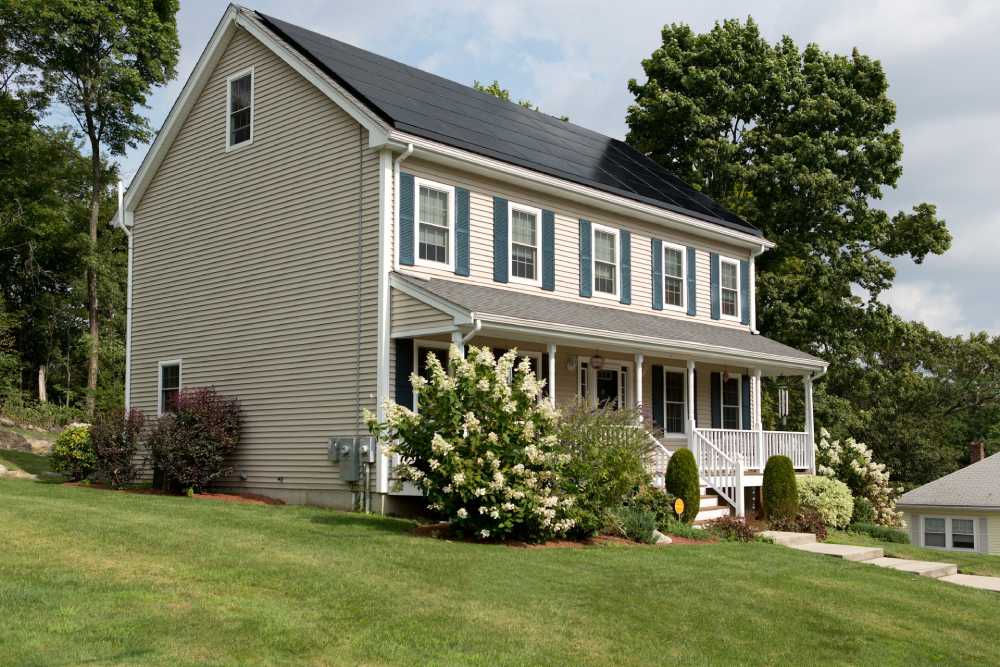How to Make Your Home More Energy Efficient: Practical Tips and Advice
Energy efficiency involves using a smaller amount of energy to complete tasks, resulting in decreased energy waste and cost savings. Putting emphasis on energy efficiency within the household can significantly impact both utility costs and the environment. This is especially crucial in areas with severe winters and scorching summers, as energy expenses can dramatically increase.
Enhancing energy efficiency not only cuts costs but also fights climate change by decreasing greenhouse gas emissions. This can be achieved through several strategies, from simple behavioral changes to significant home upgrades.
By simply switching off lights when they are not in use or installing energy-efficient windows, you can significantly reduce costs and lessen your environmental impact.
Contents
Simple Ways to Save Energy at Home
- Unplug devices: Electronics consume energy even when turned off. Unplugging them when not in use can save energy. This is especially true for devices with standby modes, which can still draw power. Using power strips makes it easier to switch off multiple devices at once.
- Use energy-efficient light bulbs: Replace incandescent bulbs with LEDs, which use up to 80% less energy and last longer. LEDs come in various colors and brightness levels, making them a versatile option for different areas in your home. They might cost more upfront, but the long-term savings on your energy bill are worth the investment.
- Seal leaks: Use caulk and weatherstripping to seal windows and doors, preventing drafts. Leaks in windows and doors may result in increased strain on your heating or cooling system. Sealing these leaks, you maintain a consistent indoor temperature and reduce energy costs.
- Adjust thermostat settings: Adjust the thermostat to save on heating and cooling expenses, lowering it during winter and raising it in summer. A programmable thermostat can automatically regulate the temperature based on your schedule, maximizing energy efficiency whether you are present or not.
Investing in Energy-Efficient Upgrades
Investing in certain upgrades can dramatically boost your home’s energy efficiency. Adding insulation is a prime example. If you live in an area with extreme seasonal temperatures, proper attic insulation Seattle can drastically reduce energy consumption by maintaining a stable indoor climate.
Studies show proper insulation can save homeowners on heating and cooling costs annually. In older homes, insulation may have deteriorated, allowing heat to escape in winter and cool air to leak out in summer. Reinforcing insulation helps maintain a stable indoor temperature, giving your HVAC system a break and lowering energy bills.
Another improvement to think about is swapping out your outdated appliances with ENERGY-rated versions. These devices meet strict energy efficiency standards set by the U.S. Environmental Protection Agency, ensuring lower energy and water consumption without sacrificing performance.
This consists of fridges, washers, dishwashers, and even HVAC units. More recent versions frequently have enhanced functions that improve effectiveness and ease of use.
Benefits of Regular Energy Audits
Energy audits, sometimes called home energy assessments, are a great way to determine how much energy your home consumes and identify ways to make it more energy-efficient.
A professional energy auditor will perform tests to pinpoint where your house is losing power. This process typically includes thoroughly inspecting your home’s insulation, heating and cooling systems, windows, and doors.
They might use tools like blower doors and infrared cameras to detect leaks and inefficiencies. Following the audit, they provide a detailed report with recommendations for improvements, from simple fixes like weatherstripping to more significant investments like new insulation or windows.
Exploring Renewable Energy Options
Renewable energy sources like solar and wind power are worth exploring in the quest for energy efficiency. Solar panels, for instance, convert sunlight into electricity, providing a clean and renewable energy source.
An increasing number of homeowners are adopting solar energy, drawn by the promise of reducing electricity bills and environmental benefits. Installing solar panels might have a high initial cost, but it offers long-term savings and, in some cases, even the possibility of selling excess energy back to the grid.
Wind turbines are another viable option for those in suitable locations. Small wind energy systems can lower electricity bills by 50-90%, depending on the wind speed in your area. While less common than solar panels in residential areas, wind turbines can be an excellent addition to properties with enough land and consistent wind.
Government Incentives and Rebates
Various government incentives are available to support homeowners in making energy-efficient upgrades. These incentives can come as rebates, tax credits, or grants. For instance, the federal government offers a tax credit for installing renewable energy systems, making the initial investment more affordable.
Similarly, many state and local governments provide additional incentives for energy efficiency. Checking with local utilities is also a good idea, as they often have rebate programs for upgrading to energy-efficient appliances or performing energy-saving home improvements.
Long-Term Cost Benefits
While the initial cost of energy-efficient upgrades might seem high, they often pay for themselves over time. Improved energy efficiency can lead to significant savings on utility bills. An energy-efficient home typically has a higher resale value, making it a worthwhile investment.
Homes with features like solar panels, high-efficiency HVAC systems, and enhanced insulation are attractive to buyers who are conscious of long-term energy costs and environmental impact.
Considering these long-term benefits, adopting energy-efficient practices and upgrades is a wise financial decision for any homeowner. The peace of mind that comes with knowing you’re reducing your carbon footprint while saving money is invaluable.
Final Thoughts
Improving your home’s energy efficiency is a practical way to save money and contribute to a healthier planet. From simple actions like swapping out light bulbs to more significant investments like solar panels, every step you take adds up.
By staying knowledgeable and utilizing resources and incentives, you can make a beneficial impact on both your finances and the planet. With easy adjustments and thoughtful investments, achieving a more energy-efficient home is within reach for any homeowner.

